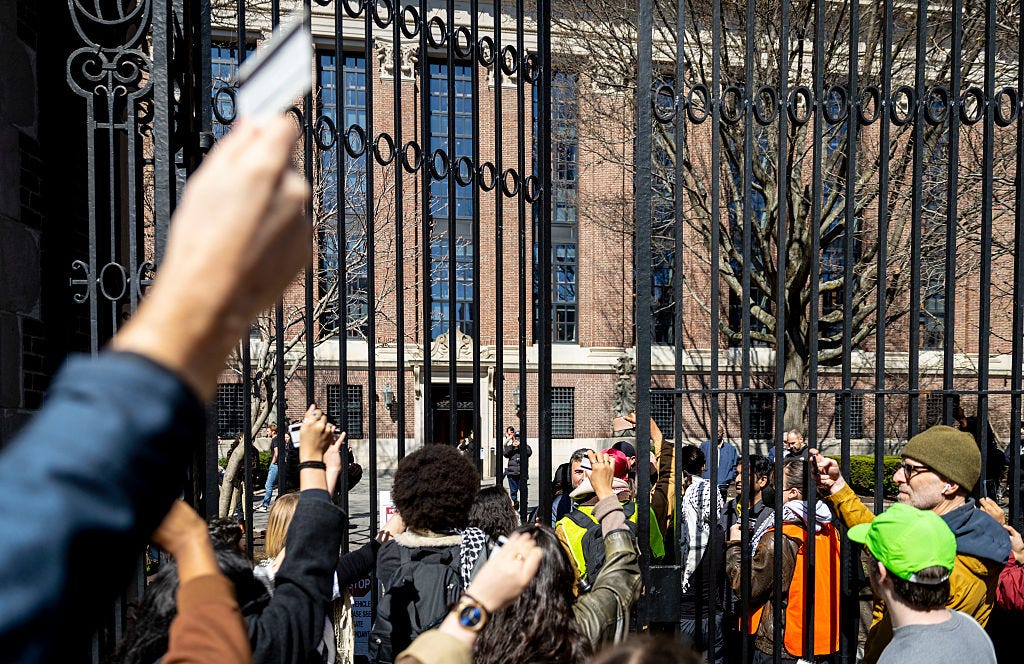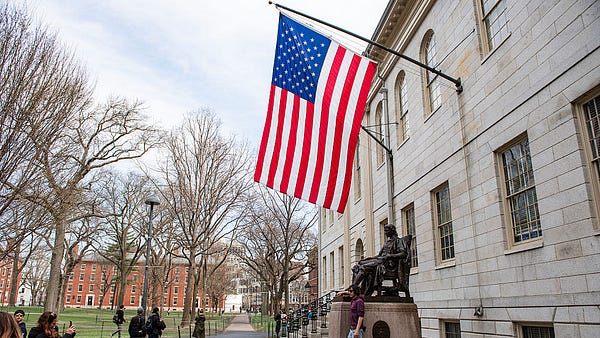
Want to be a molecular biologist at Yale? Well, make sure you have a ten-step plan for dismantling systemic racism. When making hires at Yale’s department of molecular biophysics and biochemistry, faculty are told to place “DEI at the center of every decision,” according to a document tucked away on its website.
Meanwhile, every job advertised on the site links to a DEI “rubric” that tests candidates’ “knowledge of DEI and commitment to promoting DEI,” their “past DEI experiences and activities,” and their “future DEI goals and plans.”
The questions are designed to find out how they would infuse diversity, equity, and inclusion—a focus on race, gender, sexual orientation, and other categories of “marginalization”—into their work.
Applicants for professor and lecturer jobs, currently advertised on the site, will get “zero” points if they:
Have “no knowledge or awareness about DEI issues”
Do “not feel personal responsibility for helping to create an equitable and inclusive environment”
Were “not involved in activities that promote DEI”
Have “no goals or plans for promoting DEI”
But they are marked “exceptional” if they:
Have “clear knowledge of DEI issues”
Can demonstrate “strong interest in contributing to promoting DEI in teaching”
Have a “sustained track record of multiple efforts in promoting DEI”
Show a “clear and detailed plan for promoting DEI through teaching”
The assessment puts the thumb on the scale for those with progressive sensibilities. Scientists earn a high score in the category of “DEI knowledge” by showing they understand the “specific challenges faced by underrepresented minorities”—a criterion likely to favor those with a strong faith in the concepts of microaggressions, implicit bias, and systemic racism.
Diversity statements raise serious issues about free expression, and they also signal an ill-advised shift in priority—away from disciplinary excellence and toward social activism.
As one of the world’s most influential universities, Yale has popularized diversity statements. But they are finally past their expiration date. Yale should wield its influence and join MIT in putting an end to this misguided experiment.
John Sailer is a senior fellow at the National Association of Scholars. Follow him on X (formerly Twitter) @JohnDSailer, and read his Free Press piece “John Sailer: The DEI Rollback.”
Become a Free Press subscriber today:















Frankly, I think these programs are terrifying. As they are supported, even driven, by governments, media, large corporations and institutions, not to mention social justice lunatics, the possibility for the individual to suffer some Kafka-esque fate is absolutely real. It seems as though it’s now a question of numbers, and the willingness of decent people to mobilize and reject this madness before they are out-numbered, out-voted by people with a vested interest in this loathsome Compassion Industry.
DEI will be an unfortunate microchapter inn our history, just not soon enough. It will be shown as actually harmful to the groups it is supposedly trying to help. See the UCLA Med School experiment in their anesthesia department. Even the people tasked with enhancing UCLA's reputation are speaking out about how poorly the DEI students are prepared for even simple biology. We all have access to backgrounds and bios before selecting a physician (or lawyer, or accountant, or...) and when choosing someone to perform something so important, it's not unreasonable to see people opt out of 'marginalized community members' with degrees due to a fear they didn't truly earn them. For Yale specifically, it's also not unreasonable for people to avoid hiring the headaches that are DEI fanatics, especially fanatics without true workplace skills. HR departments have already quietly started avoiding LinkedIn profiles and resumes with 'They/Them' as their pronouns due to the drama comes with the applicant. None of this should be surprising. The only surprise is that it took as long as it's taking.